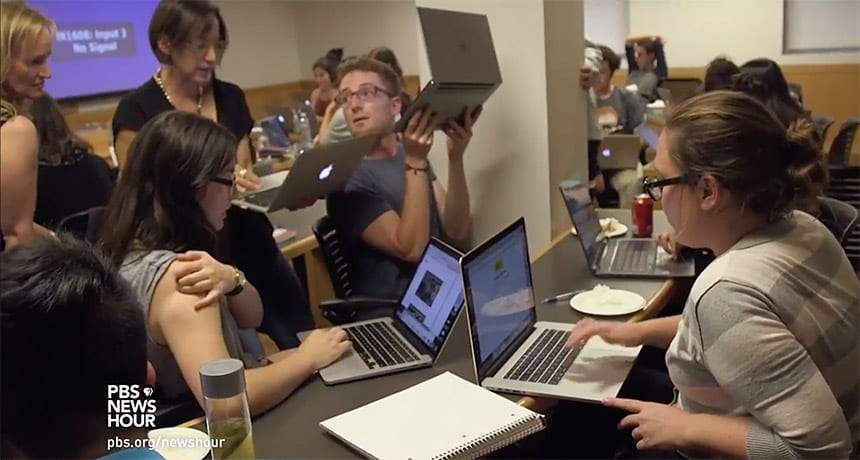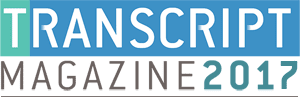
GROUNDBREAKING LAB TRAINS STUDENTS TO GATHER EVIDENCE OF HUMAN RIGHTS ABUSES
Walking through Cairo’s Tahrir Square following an Arab Spring protest in 2011, Andrea Trewinnard ’19 picked up one of the many tear gas canisters that littered the ground and saw the jarring words: Made in the United States.
“That hit me hard,” recalls Trewinnard, who participated in the massive, peaceful protests. Her disappointment in the U.S. military industrial complex “supporting oppressive state authorities” fueled her path to Berkeley Law—and to its Human Rights Investigations Lab.
 Run by the school’s Human Rights Center (HRC), the first university-based lab of its kind launched in January. It has trained over 60 graduate and undergraduate students—who collectively speak 18 languages— to conduct “open source investigations.”
Run by the school’s Human Rights Center (HRC), the first university-based lab of its kind launched in January. It has trained over 60 graduate and undergraduate students—who collectively speak 18 languages— to conduct “open source investigations.”
Using publicly available data and cutting-edge techniques, the students verify videos and photos from war zones for use in human rights reports and news stories. Their methods document evidence of genocide, crimes against humanity, and war crimes to preserve for criminal courts worldwide.
The lab collaborates with university students in Essex, Toronto, and Pretoria, South Africa. It was developed with Amnesty International, whose experts trained Berkeley students in verifying photos and videos and using geo-location tools.
Those students have logged more than 6,000 hours analyzing and authenticating videos of atrocities in countries such as Syria, Yemen, Egypt, Bahrain, Democratic Republic of Congo, and Myanmar. They also use social media to document the rise in hate speech and hate crimes after the U.S. presidential election, and feed that information to investigative journalists at ProPublica.
Trewinnard recently spent more than 20 hours verifying a series of videos related to a bombing in western Aleppo. Her work confirmed the use of cluster bombs, a war crime.
“Manipulating facts and spreading untruths is a weapon of warfare all over the world,” she says. “That’s why verification is so important.”
Collaborating with an area law firm, Jurisprudence and Social Policy Program student Mayra Feddersen—a human rights lawyer in Chile before coming to Berkeley—is leading open-source work on a legal case in Latin America.
Because accessing evidence can be challenging in human rights cases, where government assistance is often lacking, Feddersen sees open-source techniques as invaluable for gathering evidence.
“It’s a great first step before interviewing people,” she says. “With background from these investigations you can save economic and human resources, make questions more precise, and avoid double victimization.”
In June, Feddersen, Trewinnard, and other lab students will participate in an HRC-hosted international student summit on open-source investigations.
Participants will evaluate the lab’s first year and the potential for replicating the model globally, says HRC Executive Director Alexa Koenig. “Students contribute critical tech, language, and disciplinary skills,” she explains. “They are dedicated to conducting complicated and often painstaking open-source work for human rights—with the potential to make a significant impact.”
—Andrea Lampros